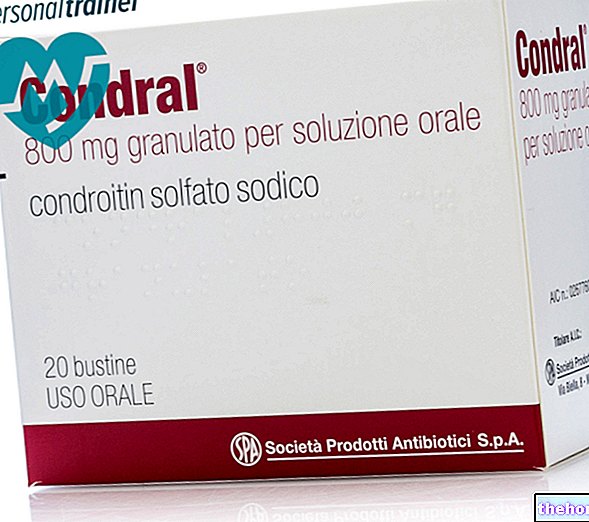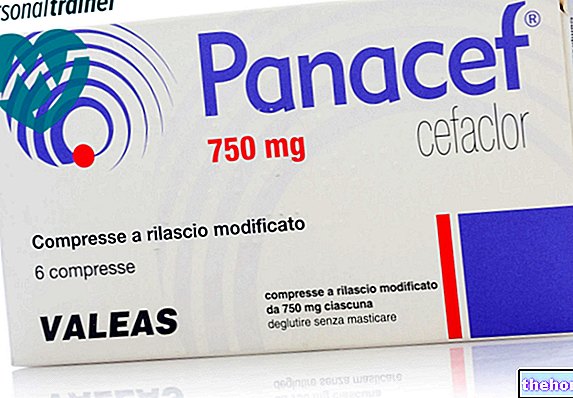Active ingredients: Omega 3 (Ethyl esters of polyunsaturated fatty acids)
SEACOR® 500 mg soft capsules
SEACOR® 1000 mg soft capsules
Why is Seacor used? What is it for?
PHARMACOTHERAPEUTIC CATEGORY
Lipid-lowering substances - Hypocholesterolemic and hypotiglyceride-lowering substances - Omega-3-triglycerides
THERAPEUTIC INDICATIONS
Hypertriglyceridemia
Reduction of elevated triglyceride levels when the response to diets and other non-pharmacological measures alone has proved insufficient (treatment should always be combined with an adequate diet)
Secondary prevention in the patient with a previous myocardial infarction
In patients with previous myocardial infarction, in combination with other therapeutic measures when appropriate, it is indicated to reduce the risk of mortality.
Contraindications When Seacor should not be used
Hypersensitivity to the active substance or to any of the excipients.
Generally contraindicated in pregnancy and lactation (see Special Warnings).
Precautions for use What you need to know before taking Seacor
As a precaution, special surveillance is recommended for subjects with haemorrhagic diathesis and treatment with anticoagulants, in which an altered increase in bleeding time may occur.
Interactions Which drugs or foods can change the effect of Seacor
Concomitant use of the drug with anticoagulants may result in a modest increase in bleeding time.
Warnings It is important to know that:
The safety of use in pregnancy and lactation has not been established.
Dose, Method and Time of Administration How to use Seacor: Posology
Hypertriglyceridemia:
1 capsule of 1000 mg 1-3 times a day s.p.m.
500 mg capsules can be used for dose adjustment and maintenance therapy.
Secondary prevention in the patient with a previous myocardial infarction:
1 capsule of 1000 mg per day.
Side Effects What are the side effects of Seacor
Mild and transient manifestations of nausea and diarrhea have been observed.
The patient is invited to report any undesirable effect not described in the package leaflet to his doctor or pharmacist.
Expiry and Retention
Check the expiration date indicated on the package.
The expiry date refers to the product in intact packaging, correctly stored.
Warning: do not use the medicine after this date.
Keep this medicine out of the reach of children.
COMPOSITION
Each capsule contains:
Active principle:
CAPSULES OF 500 mg
Ethyl esters of polyunsaturated fatty acids 500 mg
with a content of EPA and DHA not less than 85%
and in a ratio of 0.9 - 1.5 to each other
CAPSULES OF 1000 mg
Ethyl esters of polyunsaturated fatty acids 1000 mg
with a content of EPA and DHA not less than 85%
and in a ratio of 0.9 - 1.5 to each other
Excipients:
D, Lα-tocopherol, gelatin succinate, glycerol, sodium ethyl p-oxybenzoate, sodium propyl p-oxybenzoate.
PHARMACEUTICAL FORM AND CONTENT
Box of 30 soft capsules of 500 mg
Box of 20 soft capsules of 1000 mg
Source Package Leaflet: AIFA (Italian Medicines Agency). Content published in January 2016. The information present may not be up-to-date.
To have access to the most up-to-date version, it is advisable to access the AIFA (Italian Medicines Agency) website. Disclaimer and useful information.
01.0 NAME OF THE MEDICINAL PRODUCT
SEACOR 500 mg Soft capsules
SEACOR 1000 mg Soft capsules
02.0 QUALITATIVE AND QUANTITATIVE COMPOSITION
Each capsule contains:
CAPSULES OF 500 mg
Active principle:
Ethyl esters of polyunsaturated fatty acids 500 mg
with a content of EPA and DHA not lower
at 85% and in a ratio of 0.9 - 1.5 to each other
CAPSULES OF 1000 mg
Active principle:
Ethyl esters of polyunsaturated fatty acids 1000 mg
with a content of EPA and DHA not lower
at 85% and in a ratio of 0.9 - 1.5 to each other
03.0 PHARMACEUTICAL FORM
Soft capsules.
04.0 CLINICAL INFORMATION
04.1 Therapeutic indications
Hypertriglyceridemia
Reduction of elevated triglyceride levels when the response to diets and other non-pharmacological measures alone has proved insufficient (treatment should always be associated with an adequate dietary regimen).
Secondary prevention in the patient with a previous myocardial infarction
In patients with previous myocardial infarction, in combination with other therapeutic measures when appropriate, it is indicated to reduce the risk of mortality.
04.2 Posology and method of administration
Hypertriglyceridemia:
1 capsule of 1000 mg 1-3 times a day s.p.m.
500 mg capsules can be used for dose adjustment and maintenance therapy.
Secondary prevention in the patient with a previous myocardial infarction:
1 capsule of 1000 mg per day.
04.3 Contraindications
Hypersensitivity to the active substance or to any of the excipients.
Generally contraindicated during pregnancy and lactation (see p. 4.6).
04.4 Special warnings and appropriate precautions for use
As a precaution, special surveillance is recommended for subjects with haemorrhagic diathesis and treatment with anticoagulants, in which an altered increase in bleeding time may occur.
04.5 Interactions with other medicinal products and other forms of interaction
Concomitant use of the drug with anticoagulants may result in a modest increase in bleeding time.
04.6 Pregnancy and lactation
The safety of use in pregnancy and lactation has not been established.
04.7 Effects on ability to drive and use machines
Seacor does not affect the ability to drive or use machines.
04.8 Undesirable effects
Mild and transient manifestations of nausea and diarrhea have been observed.
04.9 Overdose
No cases of overdose have been reported.
05.0 PHARMACOLOGICAL PROPERTIES
05.1 Pharmacodynamic properties
Pharmacotherapeutic group: Lipid-lowering substances - Hypocholesterolemics and hypotiglyceridemics - Omega-3-triglycerides; ATC code: C10AX06.
Once incorporated into membrane phospholipids, EPA supplied directly with the drug or formed from DHA competes with arachidonic acid as a substrate for various enzymatic processes in platelets, endothelium and leukocytes, resulting in greater endothelial relaxation , a reduced platelet aggregability and a reduced chemotactic and proinflammatory potential, thus showing an antiatherosclerotic and antithrombotic effect.
EPA and DHA, like other polyunsaturated n-3 acids, show, even at low doses, an antiarrhythmic action, probably through a direct stabilizing effect on cardiomyocytes. The significant reduction in total and cardiovascular mortality, in particular in sudden deaths, observed in a large prospective trial of secondary prevention in patients with previous myocardial infarction, is linked to their antiarrhythmic action.
The favorable cardiovascular effects of EPA and DHA also include the reduction of plasma levels of triglycerides, VLDL and fibrinogen and the increase in erythrocyte deformability with consequent reduction in blood viscosity.
05.2 Pharmacokinetic properties
Absorption, excretion, tissue and plasma protein distribution were studied using the labeled product in rats and dogs.
More than 95% of the radioactivity is absorbed through the alimentary canal and a modest amount, as water-soluble material, is excreted in the urine. After 24 hours from administration, about 35% of the radioactivity is found in the tissues and in particular in the tissues involved in lipid metabolism.
The plasma peak time was 3.40 and 6.75 hours in rats and dogs, respectively.
The plasma fractions with the highest levels of radioactivity were found to be VLDL and chylomicrons.
Clinical pharmacokinetic studies have confirmed that EPA and DHA ethyl esters are hydrolyzed and incorporated into the various lipid fractions providing, after repeated administration, concentrations of EPA and DHA of the same order as those obtainable by administering natural triglycerides.
05.3 Preclinical safety data
Toxicological studies conducted on the product with acute and chronic treatments have excluded toxic phenomena, even after administration of high doses.
No teratogenic and general effects on reproductive function were observed during reproduction studies. Studies conducted in rats for 24 months did not reveal the presence of a carcinogenic potential.
06.0 PHARMACEUTICAL INFORMATION
06.1 Excipients
D, L a-tocopherol; succinate jelly; glycerol; ethyl sodium p-oxybenzoate; sodium propyl p-oxybenzoate.
06.2 Incompatibility
Not relevant.
06.3 Period of validity
36 months.
06.4 Special precautions for storage
There are no special precautions.
06.5 Nature of the immediate packaging and contents of the package
SEACOR 500 mg Soft capsules: 30 capsules of 500 mg in aluminum blister and PVC / PVDC coupled.
SEACOR 1000 mg Soft capsules: 20 capsules of 1000 mg in aluminum blister and PVC / PVDC coupled.
06.6 Instructions for use and handling
No special instructions.
07.0 MARKETING AUTHORIZATION HOLDER
SPA - Antibiotic Products Company S.p.A. - Via Biella, 8 - 20143 MILAN.
08.0 MARKETING AUTHORIZATION NUMBER
SEACOR 500 mg Soft capsules: 30 capsules of 500 mg AIC 027616010
SEACOR 1000 mg Soft capsules: 20 capsules of 1000 mg AIC 027616022
09.0 DATE OF FIRST AUTHORIZATION OR RENEWAL OF THE AUTHORIZATION
AIC Decree 12/9/91 / Renewal 1/6/00.
10.0 DATE OF REVISION OF THE TEXT
February 2001.




























